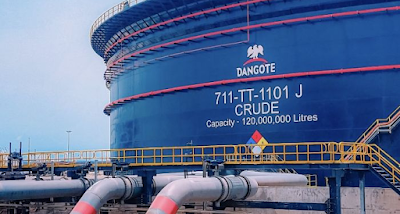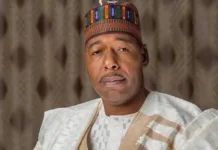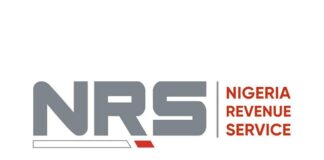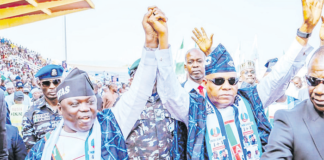Because we sell at cheap price, petrol marketers boycott our products, complain to Tinubu – Dangote Refinery
There is a deliberate attempt by some marketers to block the refinery’s operations, as they prefer to import products rather than support local refining
The Vice President of Dangote Industries Limited, Devakumar V.G. Edwin, has expressed frustration over the boycott of Dangote Refinery’s products by local marketers.
During an X (formerly Twitter) space hosted by Nairametrics on Wednesday, he revealed that despite the refinery’s efforts to supply affordable petroleum products, many traders in Nigeria have refused to purchase from the refinery, preferring to continue importing refined products from abroad.
Speaking during the session, Edwin highlighted the initial vision behind the establishment of the Dangote Refinery, which was aimed at reducing Nigeria’s reliance on imported petroleum products.
“The whole purpose of doing this refinery in Nigeria was to utilize our local crude instead of exporting raw materials and importing finished products,” he explained. “We should be able to refine and use the finished products within Nigeria and produce more to export the surplus.”
Despite the refinery’s large production capacity, local marketers are only purchasing about 3% of the output.
He noted that the remaining 97% of the refinery’s production, including diesel and jet fuel, is being exported due to a boycott by local traders who refuse to buy at the refinery’s lower prices.
This has forced the refinery to explore international markets, exporting the majority of its refined products, even though it was originally intended to supply the Nigerian market.
Edwin said: “I’m selling 2 to 3% to small traders who are willing to buy, while the rest 95 to 97% I’m forced to export,” while speaking about the quantity of the refinery’s Products sold locally.
He suggested that there is a deliberate attempt by some marketers to block the refinery’s operations, as they prefer to import products rather than support local refining.
He further revealed that local marketers wrote to President Bola Tinubu, complaining about the refinery’s pricing strategies.
“They wrote to His Excellency, the president, claiming that we are disturbing the market by dropping our prices,” Edwin disclosed.
He explained that in response to market dynamics, the refinery reduced prices twice to encourage sales, but this only led to further resistance from the marketers, who accused the refinery of undercutting the market.
Edwin further said since that local marketers have been blocking the distribution of their products within the country, the refinery has been exporting most of its petroleum products.
Refinery can produce 54 million liters of refined petroleum products per day
Edwin said that the refinery can produce up to 54 million liters of refined petroleum products per day, depending on crude oil supply.
However, local crude supplies have been inconsistent, forcing the refinery to rely on imported crude from countries like the U.S. and Brazil.
This situation has been exacerbated by international oil companies (IOCs) prioritizing foreign markets, often selling crude oil at prices significantly above the market rate for local buyers
He added that the refinery’s production capacity is more than sufficient to meet Nigeria’s petroleum needs. He stated that 44% of the refinery’s output is enough to cover 100% of the country’s demand for refined products.
The key challenges facing the Dangote Refinery and its impact on Nigeria’s fuel supply and prices:
📌Over 95% of petroleum product importers in Nigeria are not buying from the Dangote Refinery.
📌 The Dangote Refinery struggles to sell about 29 tankers of diesel per day due to low patronage from local petroleum product importers.
📌 As a result of this poor local patronage, the refinery exports most of its diesel and aviation fuel.
📌 The Dangote Refinery has imported around 57 shiploads of crude, as local supply from the PC remains limited.
📌Petroleum product marketers in Nigeria have written to President Bola Tinubu, complaining that the refinery’s local diesel prices – which have dropped from N1,200 to N1,000 and now to N900 per litre – are negatively impacting their businesses. …Continue Reading















